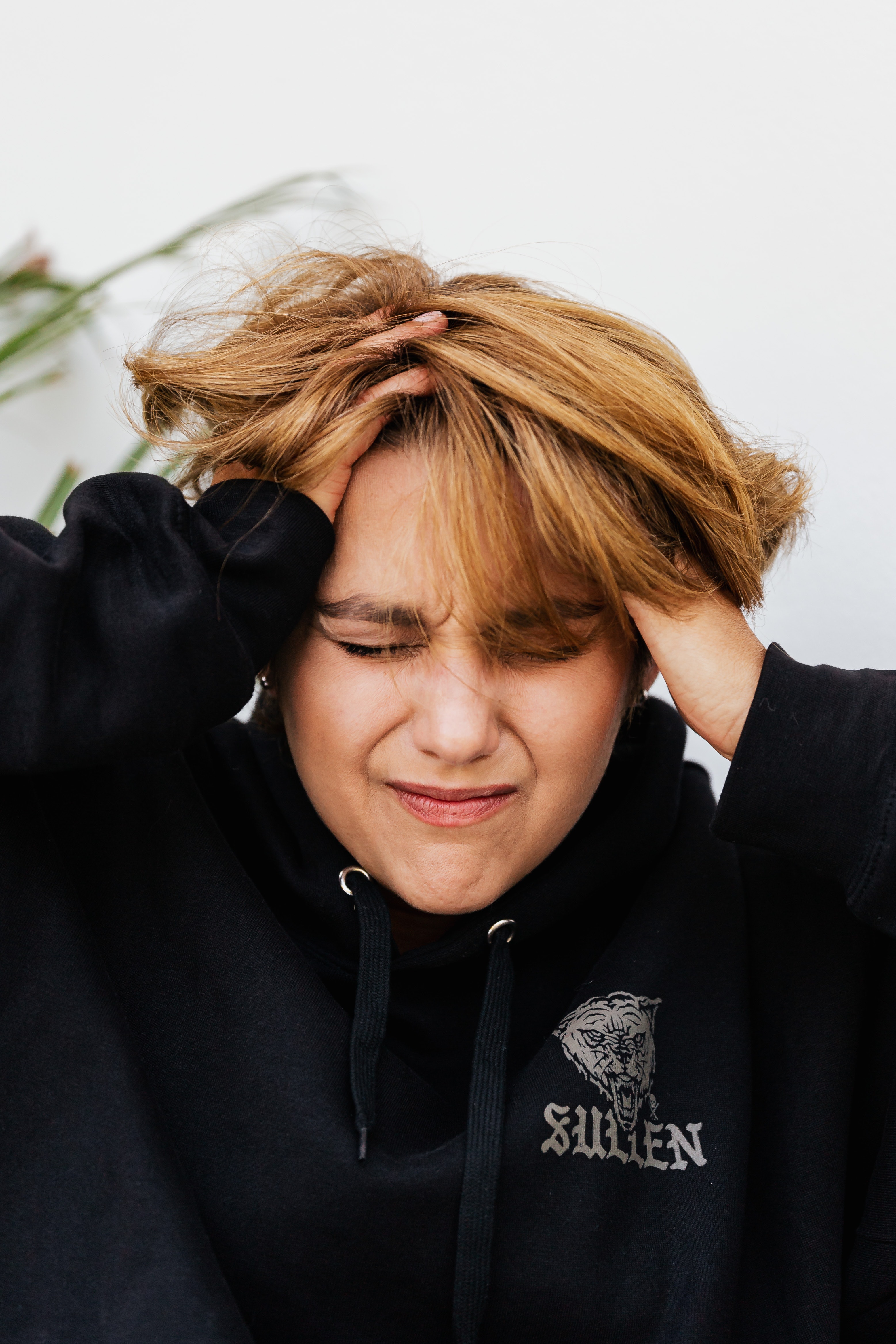psychological problems and anxiety, especially if it is a hurtful word, and it will have a negative impact on your life, and neglecting your feelings is completely mistaken and can lead to suicide. We are here for you. Don't put yourself through unnecessary stress. Consult an online psychologist at Esaal to learn how to deal with stress and not let it ruin your life.Use EmployeeWellness50 to get 50% off for all usershttps://bit.ly/3hVQc96 Read More

5 Ways to treat panic and anxiety attacks without medication
Dealing with panic attacks and anxiety can be overwhelming, and sometimes you need instant treatment to get well until you see your doctor. In this article, we'll explore the difference between anxiety attacks and panic attacks, and provide you with friendly, non-medical tips on how to calm down after a panic attack. Additionally, we'll discuss alternative treatments for generalized anxiety disorder (GAD) that don't involve medication.
Remember, these tips can be complementary to professional advice, so consult with a healthcare provider for a comprehensive approach to managing your condition.
Understanding the Difference between Anxiety Attacks vs. Panic Attacks
Many people use the terms "anxiety attack" and "panic attack" interchangeably, but they actually describe distinct experiences. While they share some similarities, understanding the differences can help you navigate your treatment better.
Anxiety attacks are often a response to a specific trigger, such as public speaking or financial stress. They usually develop gradually and involve milder symptoms, for example increased heart rate, sweating, and a sense of unease or worry. In contrast, panic attacks tend to occur suddenly and reach their peak within minutes.
Panic attacks can cause intense fear or discomfort, along with physical symptoms like:
-
Rapid breathing
-
Chest pain
-
Dizziness
-
Feeling impending doom
Panic attack treatment without medication
-
Cognitive Behavioral Therapy (CBT): CBT is a widely recognized and evidence-based therapy for treating panic attacks. Its main focus lies in recognizing and confronting negative thought patterns and beliefs that lead to panic attacks.
With the help of a qualified therapist, you can learn coping mechanisms, relaxation techniques, and gradually face your fears through exposure therapy. CBT equips you with the tools to reframe your thinking and manage panic attacks effectively.
-
Lifestyle Adjustments: Certain lifestyle factors can contribute to anxiety and panic attacks. Pay attention to your sleep patterns and ensure you are getting enough restorative sleep. Practice good sleep hygiene, such as establishing a regular sleep schedule and creating a calming bedtime routine. Additionally, minimize or avoid substances that can trigger or worsen anxiety, such as caffeine, alcohol, and nicotine.
3. Stress Management
Stress has become a common part of our lives. However, it's essential to manage stress effectively to maintain our overall well-being. Take note of situations, events, or people that consistently cause stress in your life. By recognizing these stressors, you can develop strategies to either avoid or better cope with them. Awareness is key to taking control of your stress levels. For managing your stress, make sure you get professional help since it might be difficult to do on your own.
How to Calm Down After a Panic Attack:
-
Deep Breathing: Focusing on your breath can help regulate your body's stress response. Breathe slowly and deeply, inhaling through your nose and exhaling through your mouth. Count to four as you inhale, hold for a count of four, and exhale for a count of four. Repeat this pattern until you feel more relaxed.
-
Grounding Techniques: Engage your senses to relieve distress and reconnect with the present moment. Focus on the feel of an object in your hand, listen attentively to the sounds around you, or describe out loud what you see in your surroundings. This can divert your attention away from anxiety-provoking thoughts.
-
Progressive Muscle Relaxation: To relax your body, tense and release each muscle group, beginning from your toes and progressing up to your head. This technique helps release tension and promotes a sense of calmness.
-
Mindfulness and Meditation: Practice mindfulness techniques, such as guided meditation or body scans, to cultivate a non-judgmental awareness of your thoughts, feelings, and bodily sensations. These practices can enhance your ability to manage anxiety over time.
-
Engage in Soothing Activities: Find activities that help you relax and provide a sense of comfort. It could be taking a warm bath, reading a book, listening to calming music, or engaging in a hobby you enjoy. Discover what brings you joy and make time for it regularly.
Treatment for Anxiety Disorder without Medication
Managing generalized anxiety disorder can be challenging, but there are effective non-medical approaches you can try:
-
Cognitive Behavioral Therapy (CBT): CBT helps identify and challenge negative thought patterns that contribute to anxiety. A trained therapist can teach you coping skills and help you develop strategies to reframe your thinking.
-
Exercise and Physical Activity: Regular exercise has been shown to reduce anxiety symptoms and improve overall well-being. Engage in activities you enjoy, such as walking, jogging, swimming, or yoga, for at least 30 minutes a day.
-
Relaxation Techniques: Incorporate relaxation exercises into your daily routine, such as deep breathing, progressive muscle relaxation, or guided imagery. These practices can reduce stress and promote relaxation.
-
Healthy Lifestyle: Maintain a balanced diet, get enough sleep, limit caffeine and alcohol intake, and avoid smoking. A healthy lifestyle supports your overall mental and physical well-being.
Remember, everyone's journey with panic attacks, anxiety, and generalized anxiety disorder is unique. While these non-medication ways can provide relief, it's essential to consult with a healthcare professional to create a personalized treatment plan. With time and perseverance, you can find the best way that works best for you and regain control over your mental well-being.
You can now consult our accredited experts by booking an online session in complete confidentiality and at an affordable price. Click here to book the session




